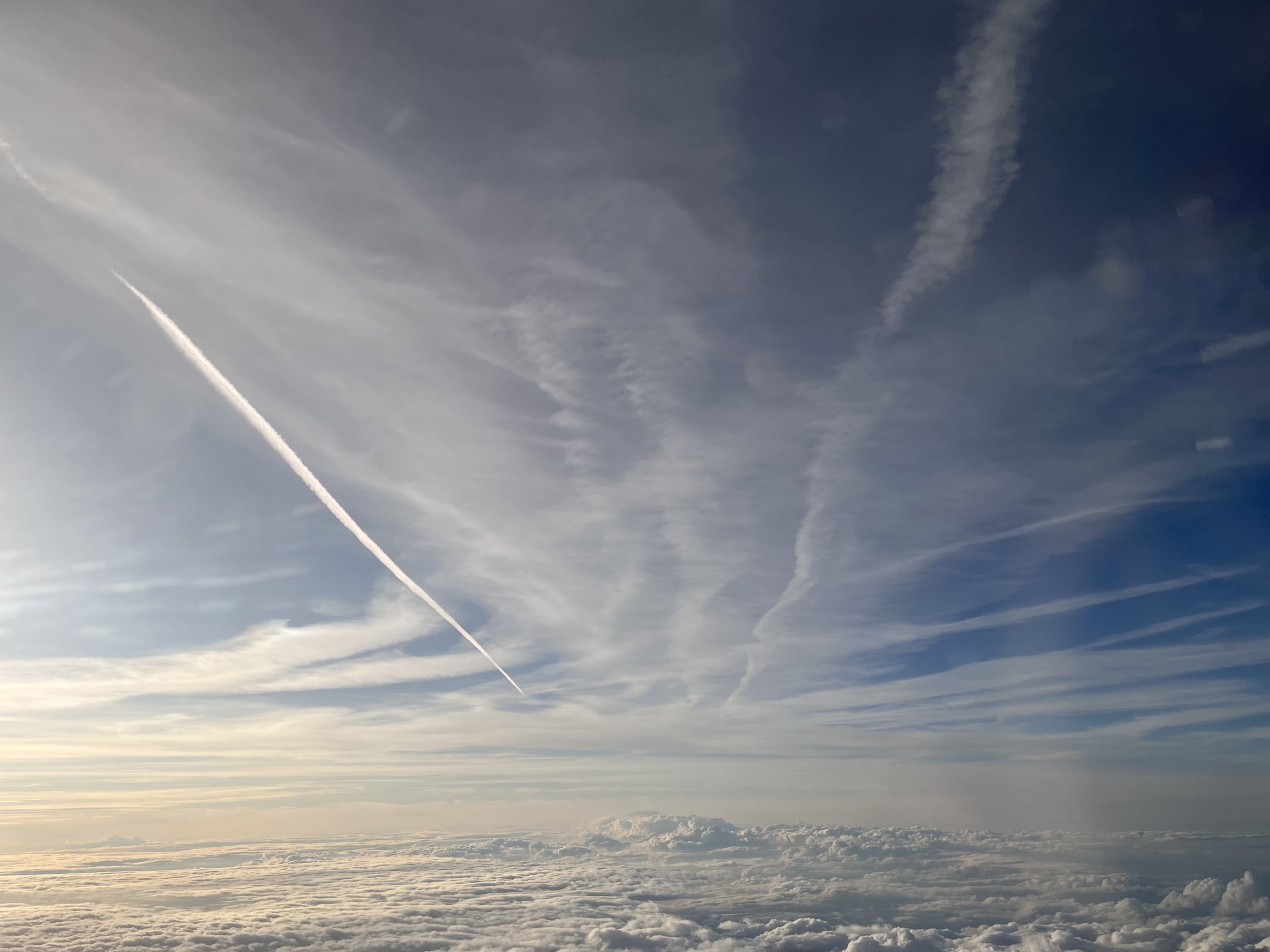Look up: a simple solution to cooling the planet is right above us
No new inventions are needed, and it’s inexpensive. Condensation trails (contrails) from planes are responsible for about 1-2% of human-induced global warming. The good news is that if we make minimal adjustments to how we fly, we can solve this problem fast. The bad news is that at a time when we urgently need to make climate progress, we're not implementing this simple solution. We founded Blue Lines to help solve this problem. See who we are and why we do this and learn how you can get involved.
Why does it matter?
Airline Contrails Index
See which airlines are addressing the major climate problem of condensation trails.
Until December 2025, FORTY airlines have publicly announced they are working on the problem – or at least acknowledge it. See who.
Very low-cost climate solution
What is the price of avoiding one ton of CO2 equivalent by mitigating contrails?
In this 2020 study of contrails over the Japanese airspace, researchers from Imperial College London and the German Aerospace Center DLR found that by diverting only 1.7% of all flights in this region around the contrail-prone areas, 59% of the climate-warming from contrails could be avoided. The cost of following this strategy would only be 0.014% in extra fuel burn and CO2 emissions, while the benefit for the climate would be substantial.
Similarly, Austrian company Flightkeys has been using its newest flight planning software to simulate contrail avoidance at scale. Early results found that the price of avoiding one ton of CO2 equivalent was less than 1 USD (fuel and CO2 penalty when flying around contrail-prone areas). To put that into perspective, the price of having Climeworks capture one ton of CO2 from the atmosphere in their plant in Iceland is 800-1250 EUR.
In August 2023, Google Research announced they had been conducting a six-month study with Breakthrough Energy and American Airlines, whose pilots flew one leg of 70 round-trip journeys at an altitude where contrails were expected to form. Going the other way, they flew at a slightly lower altitude to avoid contrails. This resulted in 54% fewer contrails and cost 2% in extra fuel burn. However, only a fraction of flights need to be rerouted to avoid contrails, so researchers expect the total additional fuel burn to be 0.3%.
Blue Lines is the co-founder and co-organizer of the Copenhagen Contrails Conference. The first edition took place in the Danish capital in March 2025, ahead of Denmark taking over the presidency of the Council of the EU in July 2025.
To download presentations or watch videos of Day 1 sessions, please visit copenhagencontrails.org.

















